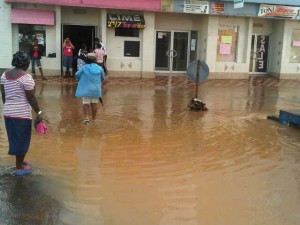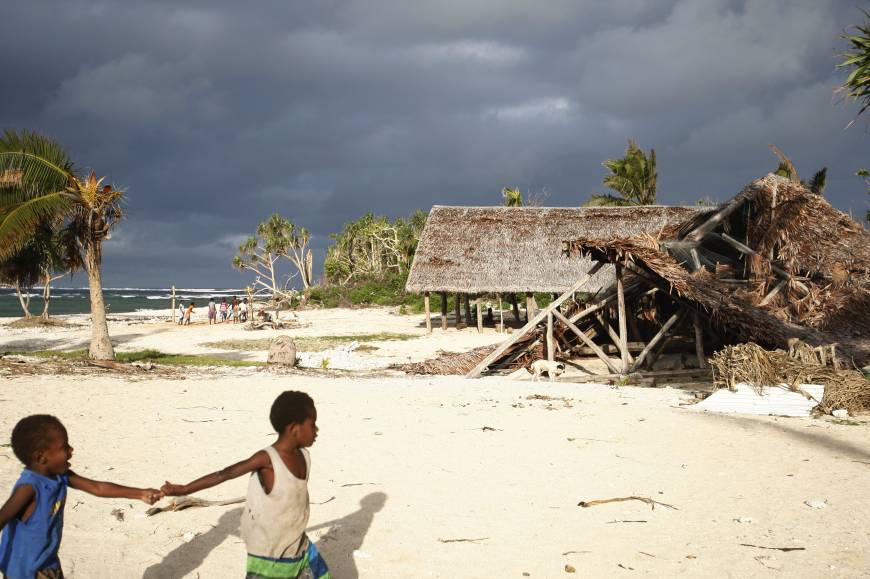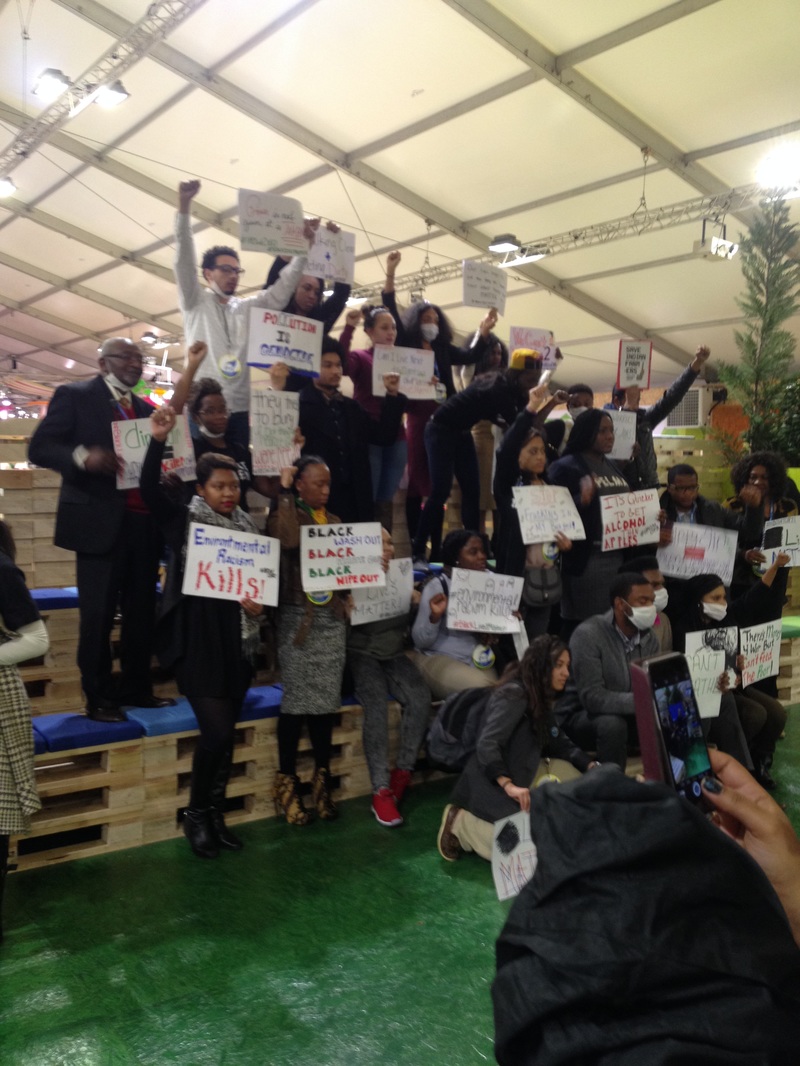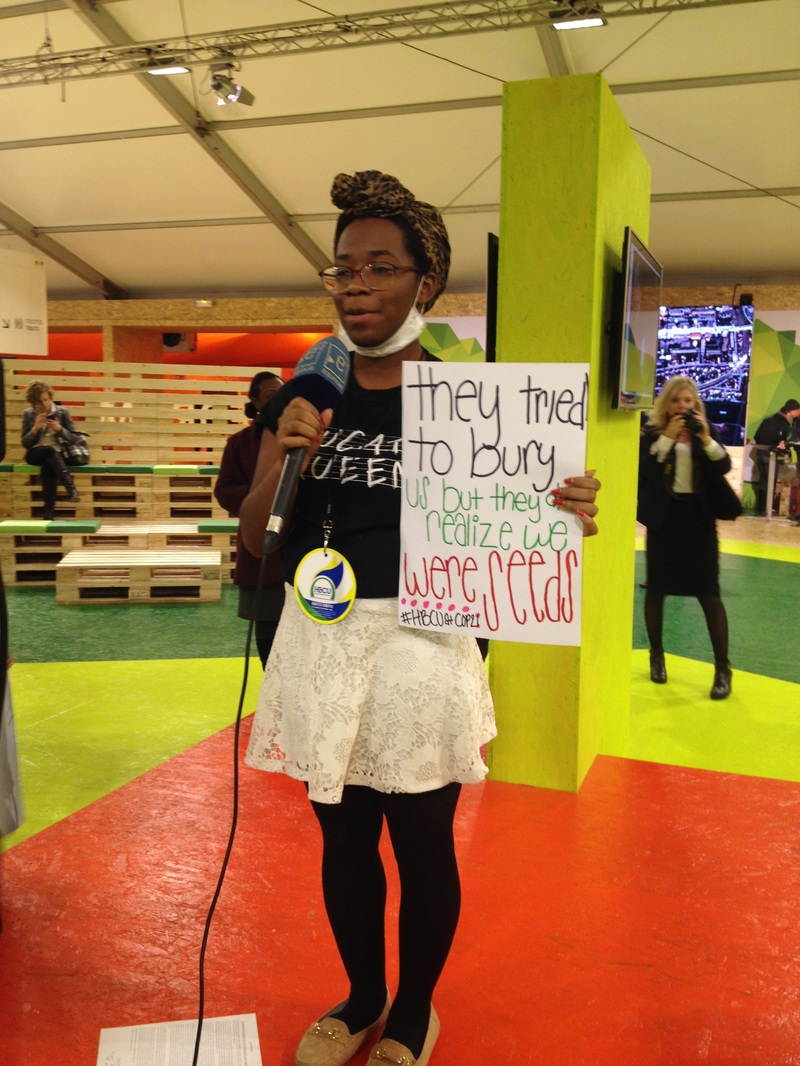“There is no room for tokenism in climate change decisions.” My first day at COP21, I heard Dr. Spencer Thomas, Ambassador and Special Envoy for Multilateral Environmental Agreements in Grenada, say these words in front of an intent audience at the U.S. Center pavilion. Dr. Thomas was part of a panel discussion titled “Natural Solutions for Coastal Resilience” and the topic of race was definitely not a main theme surrounding the conversation, but the message of that one sentence is one that stuck with me throughout the week and still lurks in the back of my mind today.
Needless to say, Grenada is feeling the effects of climate change much more severely than we are here in the United States. But who is responsible? The world’s top carbon emitters are China, The United States, and The European Union. Grenada registers at a contribution of approximately 0% of global greenhouse gas emissions and emits 2.49 metric tons of CO2 per capita (15% of what the U.S. emits per capita). Grenada’s population is 95% black. The U.S. is 12% black. China and the European Union have a similarly minimal black demographic. More simply put: a black country suffers for white countries’ crimes.
On my final day at COP21, I was surprised when I saw the beginnings of a Black Lives Matter protest. Though I knew the relevance of this issue in the United States, I was not expecting to hear chants of “We can’t breathe!” and “Black lives matter!” while all the way in Paris. But upon further examination, their voices couldn’t apply to the situation more.
This brings me back to the original point by Dr. Thomas regarding tokenism. Not only must we continue to search for climate solutions, but we must begin to include the communities most affected in these discussions. Yes, every party was represented at COP21, but the input from the countries in the most trouble was often written off as “unreasonable.” The Paris Agreement was a step in the right direction, but to make the progress needed to save countries like Grenada, Vanuatu, and Ethiopia, they must be made a bigger part of the discussion. Sources: The World Bank, Personal Conversations from COP21 in December 2015.
0 Comments
Leave a Reply. |
Categories
All
Archives
March 2024
|




 RSS Feed
RSS Feed
